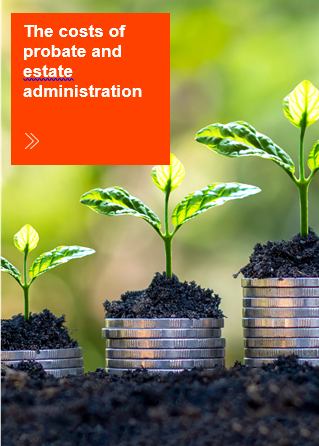

When writing your Will, you may include a Trust for certain portions of your estate, such as cash gifts or property. Alternatively, you may be acting as an Executor or Trustee for a Will that includes a Trust. One type of Trust is a Discretionary Trust.
A Discretionary Trust is one where the Trustees named in the Will have power over how the inheritance is spent e.g. what gets paid out to which beneficiaries and how frequently payments are made. This means that if there is a change in circumstances or financial concerns, the Trustee can protect the deceased’s assets. Most commonly, Discretionary Trusts are used to provide for a future need, such as someone who may need more financial help than other beneficiaries, or for a beneficiary who is not able to deal with their finances independently. The details of the Trustees’ involvement will be laid out in the Trust document; in the case of a Will Trust, the Will becomes this document.
Nil Rate Band Discretionary Trusts (NRBDT)
The Nil Rate Band (NRB) is the amount you can pass on to beneficiaries of your estate without being charged any Inheritance Tax. Currently, this threshold is set at £325,000 until 2028. There is also a Residence Nil Rate Band (RNRB), which is presently £175,000. As of 2007, the NRB can be transferred between spouses and civil partners after the first death. This is referred to as the Transferable Nil Rate Band.
A NRBDT leaves any remaining amount from the deceased’s NRB in a Discretionary Trust. This can be used to leave Inheritance Tax-free gifts, because the unused NRB is held outside of the individual’s estate and therefore will not be included in Inheritance Tax calculations.
Please contact us today for more information about Trusts.

Can an Executor of an estate sell the property?
The Executor of an estate has the authority to sell the property of the deceased, as long as it is specified in the Will or authorised by the court. However, the Executor needs to be sure there are no surviving joint owners or clauses in the Will that prevent selling the property. The process of selling the property (which is part of the estate administration process) will depend on the specific circumstances of the estate, such as whether there is a valid Will, any outstanding debts, disputes among beneficiaries, and more.
In general, an Executor can sell property without the approval of all beneficiaries, but they have a legal duty to act in the best interests of all beneficiaries and to follow the instructions set out in the Will. For example, the Will may specify that the property must be sold through a specific method. If the Will does not include any instructions on how the property should be sold, the Executor must act reasonably and in the best interests of all beneficiaries.
There is no fixed time frame for an Executor to sell property in the UK. The time taken to sell the property will depend on a variety of factors, such as the current market conditions, the condition of the property, the location, and the complexity of the estate. However, the Executor is expected to act in a timely and efficient manner to administer the estate.
In many cases, the Executor may need to obtain the Grant of Probate before they can sell the property. The process of obtaining a Grant of Probate can take several months, and this may delay the sale of the property. Again, there’s no official time frame within which probate must be applied for, but the Executor puts themselves at risk of claims against the estate if they cause delays to the process, so it should be started as soon as possible.
Contact us to learn about selling property during estate administration.

How difficult is it to do probate yourself?
Probate refers to the process of obtaining a Grant of Probate, which is a legal document that an Executor may need to administer the estate of someone who has died. Probate is not always required. It is generally required when:
- Assets are held solely
- The balance of assets exceeds the probate threshold(s) of the financial institution(s) that they are held with
If assets are held jointly, they will often pass automatically to the surviving spouse, civil partner, or joint owner. Additionally, if the estate is worth less than £5,000, probate is likely not needed; most financial institutions will release funds lower than this. If probate is required, it’s best to start the process as soon as possible so that the Executor can begin administering the estate. Some tasks must be completed beforehand, including:
- Registering the death
- Valuing the assets and liabilities
- Valuing the property
- Valuing any gifts made by the deceased
Once the estate has been valued for Inheritance Tax purposes (if applicable), an application can be submitted to the Probate Registry. This can take several months to be approved, and the process can be delayed by errors with the application or Probate Registry delays. Many choose to instruct a professional to apply for probate on their behalf, as it is a complicated process that involves a lot of paperwork and legal knowledge. It’s best practice to obtain a range of quotes when choosing a professional provider so that you can understand what is included in each service and make an informed decision.
For advice on how to proceed with the probate process, get in touch.

How much does estate administration cost?
It’s important to be aware of the costs associated with applying for probate and estate administration to help you plan for the financial impact.
Probate Registry fees in the UK are charged by the government for issuing a Grant of Probate, which may be required to administer the estate of a deceased person. These fees depend on the value of the estate. As of 2023, the fees are £273 if the estate value is £5,000 or over. However, no fees are applicable if the estate value is under £5,000. The fees are payable by the Personal Representative (the individual dealing with the estate) and must be paid before the Grant can be issued. It is important to note that these fees are separate from any fees charged by professional probate providers.
The cost of instructing a professional to complete the probate process or full estate administration can vary depending on the complexity of the estate, the size of the estate, and the specific services required. Professionals, such as probate and estate administration providers and Solicitors, can charge in a variety of ways, including fixed fee pricing, hourly rates, or a percentage of the estate. Many people find fixed fees preferable, as they provide a clear view of exactly what you’ll be paying upfront. Hourly rates can quickly add up and the final cost may be unclear at the outset. A percentage of the overall estate can be expensive, and it is not always reflective of the work involved.
In addition to the Probate Registry fees and probate service fees, there may be other costs associated with the estate administration process that should be taken into consideration, such as: valuation fees; insurance costs; court fees; and more. By obtaining a clear breakdown of the costs involved before proceeding, you can ensure that there are no unexpected expenses. Executors can claim back reasonable expenses from the estate once the administration is complete.
Please get in touch for more information about probate costs.
Contact us if you have any questions or need further information. Call us at 0121 6935380 or email riffat@crystal-advice.co.uk.

